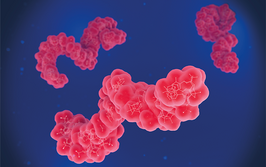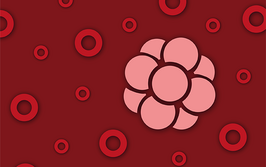
Number One Mystery
How solving a riddle about pungent camel urine could lead to potential diagnostics or treatments for African sleeping sickness
Sleeping sickness, also known as African trypanosomiasis, is a parasitic disease perpetuated by Trypanosoma brucei, and mainly affects sub-Saharan Africa – resulting in approximately 9,000 deaths a year. Researchers from Trinity College Dublin have found a new potential tool for early diagnosis – or even treatment – of the disease by solving an old riddle: why do camels infected with T. brucei excrete pungent redbrown urine? (1).
According to Anne McGettrick, Senior Research Fellow at Trinity College Dublin and lead author of the paper, it all started in a pub, over a pint of cold Guinness…
“Luke O’Neill, Professor of inflammation at Trinity College Dublin, had just published a paper in Nature showing that the metabolite, succinate, acted as an immune modulator,” says McGettrick. “And he was chatting in the pub one evening with Derek Nolan, a molecular parasitologist at Trinity, who mentioned that T. Brucei produces high levels of certain metabolites in the bloodstream of infected patients – and camels.”
Researchers had always thought that the metabolites were simply a byproduct of their metabolism, but Nolan wondered if they might play a role in the ability of these parasites to evade the immune response. “O’Neill agreed to test some of these metabolites to see if they had any effect on the innate immune response of cells in the laboratory,” says McGettrick.
The testing unearthed a metabolic by-product of T.Brucei activity known as indolepyruvate, which alters the composition of the camel urine – affecting its color and odor. “The advantage of the parasite excreting indolepyruvate is that it modulates the inflammatory and immune responses of the host – especially at the peaks of infection. This prolongs host survival and thereby potentiates transmission of the parasite to the tsetse fly, which ensures it can complete its life cycle,” says McGettrick. “This is the first demonstration of a metabolite, produced by a parasite, interfering with the host immune response.”
The researchers hope their work will open the door to new tests for early diagnosis and treatments for sleeping sickness – with indolepyruvate as a potential target. In addition, McGettrick believes the research could open up the possibility that other metabolites, produced by invading pathogens, could modulate the immune response.
- AF McGettrick et al., “Trypanosoma brucei metabolite indolepyruvate decreases HIF-1α and glycolysis in macrophages as a mechanism of innate immune evasion”, Proc Natl Acad Sci USA, 113, 48 (2016).

Over the course of my Biomedical Sciences degree it dawned on me that my goal of becoming a scientist didn’t quite mesh with my lack of affinity for lab work. Thinking on my decision to pursue biology rather than English at age 15 – despite an aptitude for the latter – I realized that science writing was a way to combine what I loved with what I was good at.
From there I set out to gather as much freelancing experience as I could, spending 2 years developing scientific content for International Innovation, before completing an MSc in Science Communication. After gaining invaluable experience in supporting the communications efforts of CERN and IN-PART, I joined Texere – where I am focused on producing consistently engaging, cutting-edge and innovative content for our specialist audiences around the world.




















